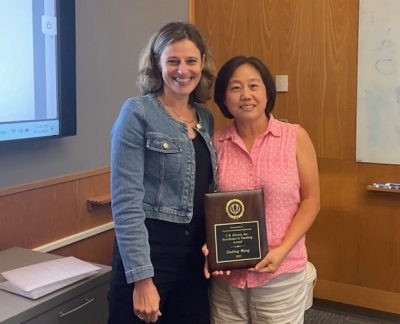Congratulations to Koushan Mohammadi, who successfully defended his PhD dissertation and took a postdoctoral position in Tulane University. We wish him the best as he starts a new chapter of his career!
Koushan’s paper published in April is featured as a cover story in the latest (September) printed issue of the Bulletin of the American Meteorological Society (BAMS). See the highlight here: Advanced Detection and Early Warning to Curb Agricultural Impact.
